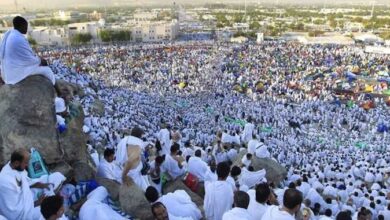On Wednesday, the Egyptian government approved amendments to four articles of the Unified Draft Law on Places of Worship proposed by the Orthodox Church. The amendments minimize the area required for houses of worship and delegate responsibility for issuing permits to local municipalities.
The long-anticipated move came in response to repeated calls by Egypt’s Copts for an anti-discrimination act to accompany the existing law on building mosques. Last Sunday, the House of the Egyptian Family, an ad hoc committee formed by both Grand Sheikh of Al-Azhar Ahmed al-Tayyeb and Pope III Shenouda, rejected the draft law.
Some have attributed the rejection to widespread public criticism, especially from Coptic activists who regarded the bill as “discriminatory and restrictive.”
Viola Halim, a pharmacist, expressed optimism after the government met a number of Church demands. “It’s considered a big step forward, but the rest of our requirements must be fulfilled to quell the sense of religious discrimination,” she said.
Halim noted two other ideas the government is still considering, such as imposing a fine for permit violations rather than arresting violators. The Church requests a maximum fine of LE 50,000 and a minimum fine of LE 5000.
“We were forced to pray in unlicensed places or convert religious complexes into churches due to the obstacles and restrictions we face in obtaining church building permits,” Halim said.
Hussein Abdel Fatah, a 43-year-old newspaper vendor, supports the government’s recent move.
“Passing a specific law that complies with the Christians’ concerns and demands is a feasible solution for all the hassle we have been seeing for a long time,” he said.
Abdel Fatah, however, added that Christians must accept a compromise in order to curb religious intolerance. “The country’s progress will remain paralyzed as long as each side insists on an all-or-nothing approach. Common ground must be found to avoid a repeat of Maspero incidents,” he said.
According to the National Commission for Justice Member Amir Ramsey, Pope Shenouda said he would not accept the draft law unless the government approved the two reservations.
“We were aiming to ease the strict conditions imposed by the government, including the distance between each church,” said Hafez Abu Saeda, legislative committee head of Egypt’s National Council for Human Rights. He noted the reasons behind the amended law proposed by the council this month, and listed a number of factors that should be taken into account when enacting a new law on places of worship.
“Population density is among the crucial factors by which the number of both mosques and churches should be determined,” he said, adding that the religious community must have the right to appeal through administrative courts if local councils reject the permit.
Fahmy Mounir, a Coptic doorman, described the draft law as rigid.
“The condition stipulating that places of worship must be over 1000 square meters in size is illogical. How could we find such a big space in Cairo’s over-crowded neighborhoods? Maybe this condition could be implemented in new cities.”
Mounir also criticized extensive authority given to governors to grant permits for building churches without specifying conditions for granting them.
“Licenses must be issued based on stringent standards applied to all religions. It cannot be determined according to governors’ arbitrary decisions,” Mounir said.
Marzouq Gomaa, a kiosk owner, believes that if the draft law had been implemented, it would have led to a wave of anger among Muslims. “The government cannot pass a single law that meets the requirements of both Muslims and Christians. Muslims represent the majority of Egypt’s population, so how could the number of mosques be equal to that of churches?” Gomaa concluded.




